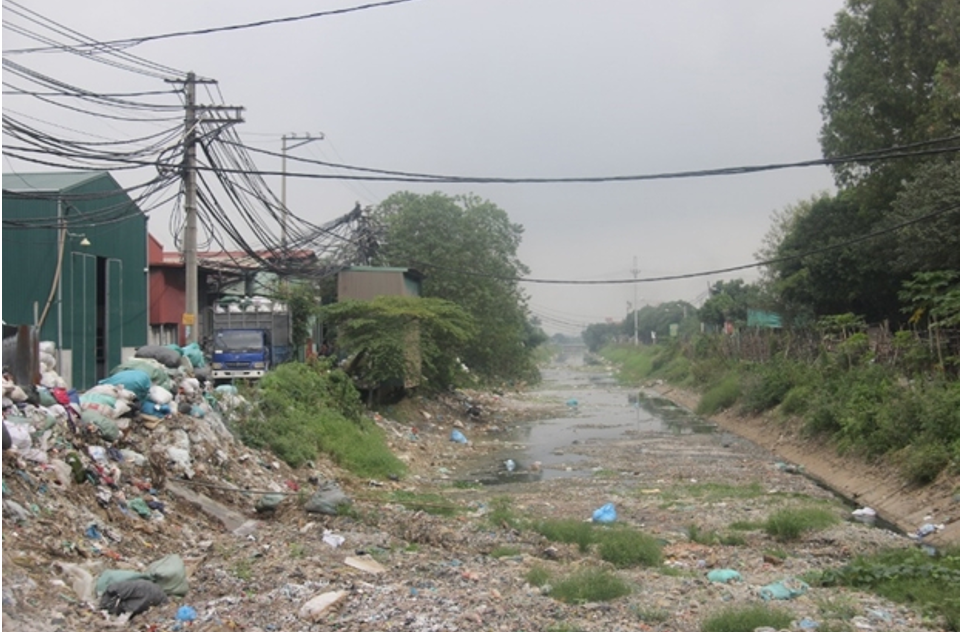The United Nations Development Programme (UNDP) in Vietnam, the Norwegian Embassy, and the Department of Agriculture and Environment of Hung Yen Province recently consulted to prepare for the implementation of the “Environmental Rehabilitation and Restoration Plan for the Plastic Pollution Area in Minh Khai Craft Village, Van Lam District, Hung Yen Province”.
The consultation brought together representatives from the Department of Environment, local authorities, businesses, and national and international experts to provide feedback on the draft plan UNDP and its partners developed.
Since 2023, UNDP, the Norwegian Embassy, the Norwegian Agency for Development Cooperation (NORAD), and Hung Yen authorities have been collaborating to seek practical solutions to plastic waste management in Minh Khai. As a key step, UNDP successfully piloted collecting and co-processing more than 111 tons of non-recyclable plastic waste at the Lam Thach Cement Plant in Quang Ninh.
 Remediating the environment of the polluted area in Minh Khai plastic recycling craft village, Hung Yen Province.
Remediating the environment of the polluted area in Minh Khai plastic recycling craft village, Hung Yen Province.Building on that, the draft plan proposes a comprehensive solution for the village’s open landfill. This includes screening and sorting waste, recycling reusable materials, co-processing high calorific waste in cement kilns, safe landfill disposal, and land rehabilitation. The approach is designed to be comprehensive, feasible, and aligned with local conditions and provincial and national environmental goals.
According to a representative of UNDP Vietnam, the plan is not just a technical document but a practical roadmap — with detailed analysis of recommended treatment solutions and estimated costs — aimed at addressing pollution and improving environmental quality and community well-being in Minh Khai.
Erlend Skutlaberg, First Secretary at the Norwegian Embassy in Hanoi, noted that co-processing has proven effective in eight Asian countries, including Vietnam. This solution benefits the environment, government, and businesses alike, and holds strong potential to comprehensively address the issue of non-recyclable plastic waste in Minh Khai.
Minh Khai is listed among the most seriously polluting sites under Prime Minister Decision No. 64/2003/QD-TTg dated April 22, 2003. Over 580 plastic recycling facilities operate in the village, processing between 700 and 1,000 tons of plastic daily. A 2024 expert survey identified two major waste accumulation zones: the access road to Minh Khai Industrial Cluster (Phase III) and the central landfill of Minh Khai Hamlet, with an estimated total waste volume of up to 124,000 m³. Despite strict local efforts, environmental pollution in the village has mainly remained unresolved for over two decades.